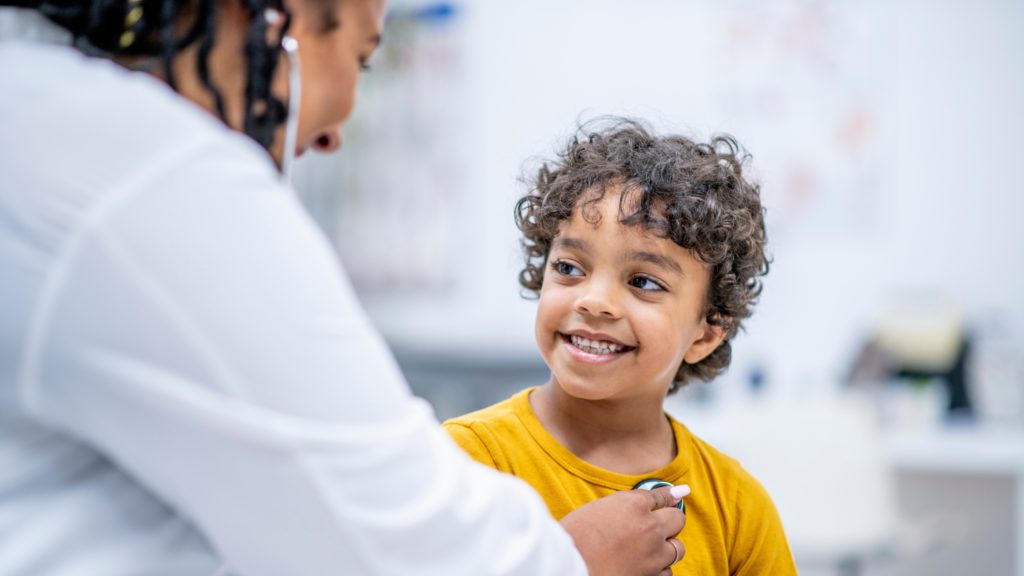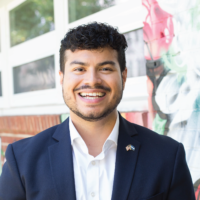May 12, 2025
Doing Our Work in Virginia: How Virginia’s Legislature is Investing in Communities (2025 Session Recap)
When we think about the Virginia that we want to live in — where families have access to affordable health care and the economic support they need to thrive, our public schools are fully funded, our criminal legal system is fair and just, and working people have access to protections in the face of uncertainty — advocates and legislative champions made significant progress this year. On May 2, the governor signed an updated version of Virginia’s two-year budget, marking the close of the 2025 legislative session. With the governor vetoing an almost record number of bills and despite several line-item budget vetoes, the legislature’s numerous investments in the budget that will benefit our communities are critical. Through these budget choices, as well as legislation passed by the General Assembly, advocates fought for and won key investments that take another step toward creating a commonwealth where every person in every community will be able to thrive.
Tax Policy
Our state tax code should lift up families with low incomes, while making sure the wealthiest among us pay their fair share. However, Virginia’s tax code is upside-down, where those with the lowest incomes pay more in state and local taxes as a share of their income than those with the highest incomes. One way we have begun to flip our upside-down tax code is through tax credits that direct economic support to families who need it most.
The federal Earned Income Tax Credit (EITC) is a longstanding and powerful tool to boost the incomes of low-income working families, making essentials like food and electricity more affordable and lifting some families out of poverty. Virginia has a state version of this credit, intended to help Virginia families get more back when filing their state income taxes. For too long, many could not access the full credit available to them.
In 2022, after many years of work from advocates, lawmakers made history when they decided to establish a refundable state EITC at 15% of the federal credit. This choice allows the credit to exceed income tax owed and helps many families see more cash back on their state taxes. While studying ways to make our state income tax more fair, the state’s legislative research agency, the Joint Legislative Audit & Review Commission (JLARC), found that this change, alongside an increased state standard deduction, made significant strides in increasing fairness in the state’s tax code.
This year, the General Assembly made history again and submitted a budget to the governor that increased the refundable EITC to 20% of the federal credit. For a married couple with two children and an income of $30,000 a year, filing a 20% refundable EITC will mean more than $1,000 back in the pockets of the family come tax time. This investment will help families in every corner of the commonwealth put more food on the table, pay for rent, and keep the lights on.
Education
High-quality public schools are the pathway to economic mobility and the bedrock of communities and a functioning democracy. Unfortunately, Virginia has never had high-quality schools in every community, whether by neglect or design.
In recent years, lawmakers began investing in education above levels last seen during the Great Recession. Building on this progress, the final updated budget includes new landmark investments in our schools to address barriers that our students face. It finally fully lifts the arbitrary limit on state funding for support staff, known as the “support cap,” which has been in place since the Great Recession and funds the state’s share of typical support staff costs. The state is committing $223 million to pay the state’s share of 4,725 additional support staff for the 2025-2026 school year. The updated budget also, for the first time, provides a flexible add-on to help local school divisions meet the needs of students with disabilities, committing $53 million to supplement Virginia’s existing less flexible support for students with disabilities. These investments will improve educational quality for students, particularly in communities with less ability to make up for shortfalls in state funding, free up local dollars for other needs, and help generate healthy and supportive learning environments.

Decriminalization of Poverty
Virginia’s criminal justice system should advance justice, treat people fairly, and promote rehabilitation. Yet, too often, the courts fail to provide clear information around court debt, and the ability to afford minimum payments can vary based on where you live. This year, state lawmakers passed legislation that takes a step toward a more fair justice system.
Thanks to the passage of House Bill (HB) 1665, people can now request to receive an itemized breakdown of what they have been charged by the court, including fines, fees, restitution, and interest. No more being handed a lump sum with no explanation. This transparency not only helps people understand and manage their debt, it makes the entire system more accountable.
For too long, for many people, what you were asked to pay depended on decisions made by the local court. HB1661 sets a statewide minimum payment of $25 for court payment plans for people who cannot afford more, and a lower amount for people who the court identifies as indigent. No one should have to choose between paying their bills and paying their court debt. This new policy helps to make sure court debt does not compete with basic needs like rent, groceries, healthcare, or childcare. This will help give people more power over their own finances, so they can focus on caring for their families, contributing to their communities, and rebuilding their lives without the constant weight of unaffordable court payments looming over them. It also sets a new standard that all courts across the state must follow.
While it ultimately did not make it out of the Senate, for the first time, a bill to guarantee counsel at first appearance in jurisdictions with public defenders (HB2217) passed the House and was included in the House budget — a major milestone in the fight for a more fair criminal legal system. Guaranteeing legal representation from the start helps ensure people are treated fairly from the very beginning, helps prevent unnecessary incarceration, and keeps more people connected to their families, jobs, and communities while they await trial.
Labor and Wage
Everyone deserves a living wage and the security of a strong safety net when times get tough. This year, lawmakers once again passed legislation to raise the minimum wage to $15 an hour and to establish a paid family and medical leave program — but the governor vetoed both. Still, there were meaningful victories for working people in Virginia. Lawmakers approved a long-overdue boost to unemployment insurance (UI) benefits. Starting in 2026, weekly benefits will increase by $52 — a modest but important step toward a more adequate safety net. Though the original legislation called for a $100 increase, the governor scaled it back.
That $52 increase matters. For a worker currently receiving UI benefits, this boost means an additional $624 over a 12-week benefit period — enough to help cover groceries, a utility bill, or a car payment. If today’s numbers held, with 17,896 Virginians receiving benefits as of early May 2025, the $52 increase would amount to more than $931,000 in additional support flowing into our communities every week. Over a 12-week benefit window, that’s over $11 million that will help families stay afloat and keep local economies strong.
Lawmakers also passed a long-overdue update to the UI system’s “income disregard,” the amount someone can earn from part-time work without reducing their benefits. Starting in 2025, this threshold will double from $50 to $100, making it easier for people to take on part-time jobs without being penalized. These wins are worth celebrating, but they’re not the finish line. The General Assembly took steps in the right direction this year, but there is still more to do to build a system that truly works for everyone.
Health Care
Access to affordable health care and services is essential to thriving families and communities, and connecting people to health coverage is vital to this shared effort. Health coverage supports individuals and families while they learn, work, and achieve their goals. Medicaid and FAMIS, Virginia’s child health insurance program (CHIP), are two major health coverage programs that are state and federally funded and currently cover nearly 2 million individuals across Virginia.

Last fall, when the Department of Medical Assistance Services (DMAS) recalculated the amount of funds needed to continue state support for Medicaid and FAMIS, it was revealed there was a need for an additional $721 million to fund health coverage and services for the coming year. Lawmakers committed to maintaining access to vital health care and provided funds to address the shortfall. This comes at a time when the federal government is discussing cutting health care benefits that will impact the millions across the commonwealth who access health coverage through Medicaid. Even in the face of greater-than-expected state costs, lawmakers ensured continued support for this critical program.
2025 Takeaways
The Virginia legislature crafted a budget and passed legislation that envisions a future that provides economic support to families, invests in critical staffing for our schools, creates more fairness in our criminal legal system, lifts up working people, and maintains access to health coverage. However, some federal lawmakers have a different vision. A greedy few in Congress have proposed sweeping cuts to Medicaid and SNAP that could take away health care or food assistance from millions of people across Virginia. Some of the proposals would shift costs to states to maintain services, which could have significant and damaging impacts on the ability of the state to pay for existing priorities like schools and transportation. While the cost being passed down to states is still unknown, Virginia lawmakers have begun to prepare themselves to be able to respond to federal changes.
Both the House and Senate have set up committees to study the impact of federal workforce and funding changes. In the final budget sent to the governor, the General Assembly included language that lays out a process to address significant revenue decreases from changes in federal grants and federal taxes. The governor ultimately vetoed the item containing this language before signing the final budget. Citing the uncertainty of the economy from federal spending cuts and tariffs, the governor also vetoed items containing $900 million in investments. Most of this ($691.3 million) was one-time cash for capital spending, however, important housing affordability and other programs were also affected. In future meetings, lawmakers will have to contend with how to protect critical investments that help families meet their basic needs and the essential services, like our public schools, that help communities thrive.
It is because of this uncertainty at the federal level that we must celebrate our wins at the state level. The progress we made during the state legislative session is a good reminder of what we can accomplish when we work together to advance people-centered policy that is grounded in credible research. By continuing our collaboration, we can stop or mitigate harmful decisions at the federal level and continue to pass good state policy that strengthens our families and communities.
Categories:
Budget & Revenue, Decriminalizing Poverty, Economic Opportunity, Education, Health Care




